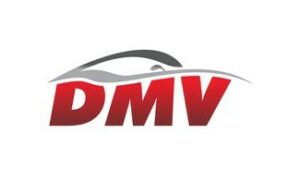
What They Are And What To Look For So You Can Stay Safe!
In today’s information and technology age, the average person has access to so many different methods of sending correspondence. Whether by email, phone, or text message, scammers are becoming more adept at disguising themselves as legitimate businesses and reaching out to potential targets. One of the latest of such scams is the DMV phishing scam. Becoming aware of this scam and learning how to stay safe is the best way to protect yourself.
Here at LegitWorkOnlineForReal.com, we’re all about helping you find real legit work online, while also aiding you in avoiding those evil online scams. We are committed to providing you with the best information and resources to help you stay informed. We have researched the DMV phishing scam and have provided information in this article to help you to stay safe.
Who Started the DMV Phishing Scams?
Phishing scams are started by scammers who are trying to get people’s sensitive information. These people have every intention of taking all of the information they need and using it as they wish to get money. They disguise themselves as organizations, businesses, or individuals and then they try to steal information from people.
What are the DMV Phishing Scams All About?
Phishing scams are some of the most common types scams and these DMV phishing scams take advantage and get sensitive information from people. The DMV has reported that there is a new, text-message phishing scam that is pretending to be from the Department of Motor Vehicles. The text message tries to steal driver’s license information from unsuspecting people. One of the scams asks people to follow a link to verify their driver’s license number, address, and other information. Another scam asks them to validate their Covid-19 vaccine status in an attempt to get private information.
How Does the DMV Phishing Scam Operate?
Scammers who are perpetuating these scams on people have devious ways that they operate. DMV officials have stated that people have received text messages
claiming that there is a partnership between the DMV and the Centers for Disease Control (CDC). The text messages state that they are demanding “an immediate validation of your COVID-19 status.” Anyone receiving a suspicious message like this is advised never to open it.
How Do You Recognize A DMV Phishing Scam?
Learning how to recognize DMV phishing scams brings you one step closer to being able to protect yourself and safeguard your information. It’s very easy to get fooled into thinking that some of these scams are legitimate correspondences from the Department of Motor Vehicles. However, there are some telltale signs you can look out for that can help you to recognize whether there is a DMV phishing scam present.
Some of the signs include:
- Text messages stating they are from the DMV
- Text messages requiring you to download a file
- Text messages asking for personal information
- Text messages asking for medical or financial details
How Do You Avoid DMV Phishing Scams?
Anyone can fall prey to these scams and it’s not enough to say that you will never be one of them. Instead, it helps learn the best ways to avoid falling victim to these schemes. Some of the ways to stay safe and to avoid DMV phishing scams include:
- Never respond to random text messages and emails
- Never click on links or download files from an unknown sender
- Do not open an attachment from an unverified source
- Avoid providing personal information over the phone or through email
- Never enter personal information on a pop-up screen
What to do if you become a victim of a DMV Phishing scam?
As unfortunate as it is, sometimes some of the scams seem so legitimate that people enter their sensitive data. Only much later do they realize that a scam has taken place and then it often feels as though it is too late to do anything about it. However, there are some steps you can take once you realize that you have become a victim of a DMV phishing scam.
Steps to take include:
- Change your passwords immediately
- Check your phone or computer for viruses
- Notify the credit reporting agencies
- Let your bank and credit card companies know what happened
- Report the scam to your local departments so the scammers can be stopped
What Are Others Saying About DMV Phishing Scams?
“Their name, their date of birth, in some cases their Social Security Numbers. Once the scammer has that information that is all they need to steal your identity, to access your accounts and do a lot of damage.” – Lisa Koumjian of the State Department of Motor Vehicles.
Our Conclusion Concerning DMV Phishing Scams?
DMV phishing scams are the latest in scams that target people’s personal and private information. Identity theft is still very prevalent and posing as the Department of Motor Vehicles in their local state has allowed many identity thieves to gain access to the sensitive information they are after. By following the steps outlined in this article, you can stay safe and avoid any potential information theft.
Do you have a different opinion or experience thats different from our review? If so, be sure to share it with us! Take a moment and leave your comments below and definitely check back often for more informative reviews on work from home opportunities.
Were you looking for our top, legit work online recommendation instead?
Click here To Read Our # 1 Recommendation!
Also, if you enjoyed reading and educating yourself concerning this “DMV Phishing Scam”, please don’t limit yourself. Feel free to read and learn “all about” a different online scam like:
“All About” Financial Aid Scams
“All About” Driving Violation Ticketing Scams
“All About” Online Charity Scams
“All About” COVID-19 Vaccine Trial Scams
And So Much More..


